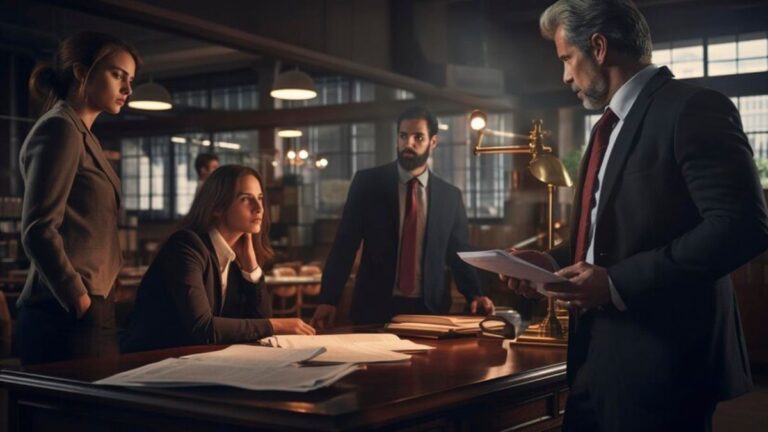What is an Expert Witness?
An expert witness is a specialist with extensive knowledge or experience in a particular field who is called upon to provide testimony in legal cases. Unlike eyewitnesses who testify about what they observe, expert witnesses offer opinions based on their expertise. Their qualifications must be robust, often including advanced degrees, certifications, and substantial professional experience. This distinction is important because the credibility and depth of knowledge an expert witness brings can significantly influence the outcome of a case.
The Role of Expert Witnesses in Legal Cases
Expert witnesses play a crucial role in clarifying complex subjects for the jury and influencing the outcome of cases. Their testimony can elucidate intricate details that are pivotal for case resolutions. Many expert witness search firms specialize in connecting legal teams with the most qualified professionals for their specific needs. By providing detailed reports and clear, concise explanations, expert witnesses can translate complex technical or scientific information into terms that juries and judges can easily understand.
For instance, in medically complicated lawsuits, a medical expert can explain the nuances of injuries or treatments, making it easier for juries to understand and deliver a fair judgment. This kind of expert testimony is crucial in cases involving significant medical information, as it provides a foundation for the jury to base its decisions on scientific fact rather than conjecture.
Types of Expert Witnesses
Expert witnesses play a crucial role in various legal cases. Medical experts interpret medical records, diagnose conditions, and provide their opinions, determining the extent of damages and future medical needs. Financial and economic experts analyze economic conditions, financial statements, and market situations, providing crucial testimony in business litigation, insurance claims, and employment disputes. Engineering and technical experts are essential in cases involving construction defects, product failures, and accidents requiring technical analysis. They can reconstruct accidents, analyze mechanical failures, and provide insight into safety codes and industry standards. Behavioral and psychological experts provide insights into mental health issues, behaviors, and psychological impacts, often influencing criminal cases and custody battles. They assess defendants’ mental state, evaluate competency, and provide treatment recommendations. Their testimony helps determine the mental health aspects of a case, providing a comprehensive view of an individual’s psychological condition.
Qualities of a Reliable Expert Witness
To be effective, an expert witness should have extensive experience and specialization in their field. They must also be able to communicate their findings clearly and concisely to a lay audience. Impartiality and objectivity are crucial traits to maintain credibility. The ability to present complex information in a manner that is both understandable and convincing to a jury is vital.
Reliable expert witnesses are often published in their fields and recognized by their peers for their expertise. They maintain an unbiased stance throughout their testimony, ensuring their findings and opinions are factually based and not influenced by the interests of the parties involved. This impartiality builds trust with the jury and strengthens the overall legal argument.
How to Select the Right Expert Witness
When selecting an expert witness, it’s critical to research credentials and delve into their previous case involvements. Conducting thorough interviews to assess their expertise and reliability can ensure they are a good fit. Consultation with legal associations and databases like the American Bar Association can also provide insights. It’s essential to verify the expert’s track record, ensuring they have a history of credible and impactful testimony.
Additionally, legal teams should consider obtaining references from previous clients and colleagues to gauge the expert’s professional reputation and reliability. A comprehensive vetting process helps avoid potential pitfalls such as undisclosed biases or conflicts of interest. The objective is to secure an expert whose professionalism and authority will stand up under scrutiny in the courtroom.
Real-Life Examples of Expert Witnesses Making a Difference
High-profile cases often hinge on the input of expert witnesses. For example, personal injury cases are significantly impacted by medical testimony, which can clarify the extent of injuries and necessary treatments. Medical experts can provide crucial insights into the long-term impacts of injuries on a plaintiff’s life, assisting the court in determining appropriate compensation.
In financial litigation, economic experts provide crucial insights into financial losses and market conditions. Their analysis can reveal the subtleties of economic damages and business disruptions, which are integral to fair settlements and judgments. Additionally, in cases involving technical or engineering disputes, expert testimony can establish the credibility of claims regarding product malfunctions or construction defects, leading to more informed verdicts.
Conclusion: Maximizing the Impact of Expert Witnesses
The successful integration of expert witness testimony has the potential to revolutionize legal methods. In difficult situations, legal teams can significantly increase their chances of achieving a good outcome by selecting the correct expert, knowing their function, and providing them with sufficient preparation. Expert witnesses serve to demystify complex subjects and direct jurors toward well-informed conclusions by providing a crucial aspect of authority and clarity to the courtroom.
It is impossible to overstate the long-term advantages of using a carefully selected expert witness in your legal strategy. Their impartial analysis and specialist knowledge are essential resources for negotiating the complexities of the legal system and getting fair results.
